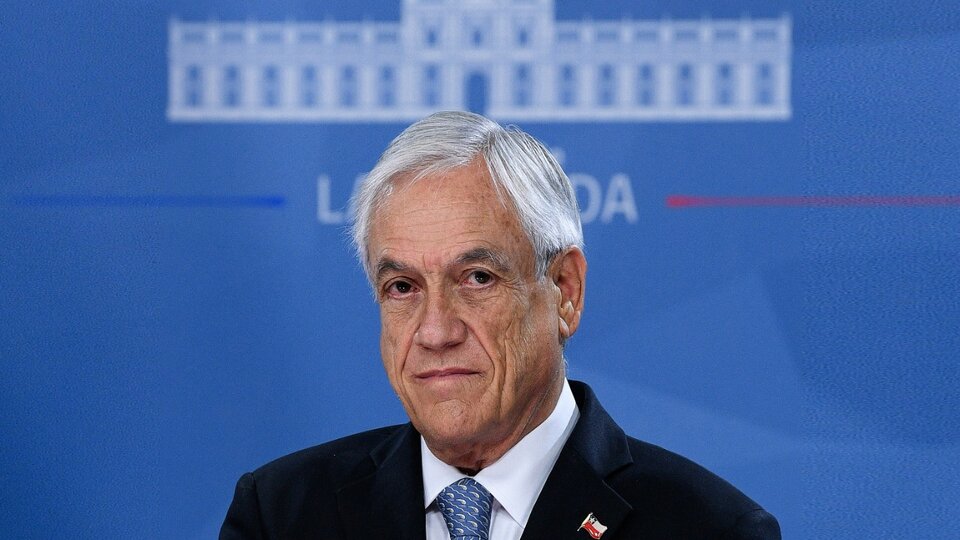
[ad_1]
From Santiago, Chile
Yesterday evening, as the first timid rains of this fall registered in Santiago, pots started ringing in various areas of the city. The reason was the blockade by the government of Sebastián Piñera on the third 10% withdrawal of AFP (Pension Fund Administrators) promoted by the opposition, via the Constitutional Court. One of those “inventions” of the 1980 Constitution established by the Pinochet dictatorship which are still in force and which makes it possible to review and prevent the progress of certain projects even if they were, as in this case, already approved by the Chamber of Deputies and are currently being processed in the Senate.
The 142-page requirement indicated the “unconstitutional” nature of the withdrawal, since it would be an economic decision that would only correspond to the President. An action criticized even by the ruling party, considering that two withdrawals had already been approved before and that it has been interpreted by some analysts as a serious political error or even a “kick in the feet” of the Piñera government, because it could cause a new social outbreak like the one that occurred in October 2019 which, in addition to forcing the political class to call elections that ended with the approval of the change of Constitution, was only interrupted by the pandemic.
In addition to Chile’s poor economic situation, with an unemployment rate of 10.3, the rise of informal jobs or the use of food delivery apps as a means of generating resources, there is also a management of the pandemic which, despite mass vaccinations already led to 33,737 deaths. Thus, the uncertain possibility of urgently withdrawing the money saved for retirement generated unease that transcended social media and took to the streets after 8 p.m. There were also barricades, clashes with the police and attacks on police stations in the municipalities of Ñuñoa and Peñalolén.
Insufficient bonuses
All that adds to the problems citizens have had in accessing zero-rated government bonds and credits, as low as full of demands, including demonstrating unemployment with regulations or contracts, without considering freelancers, cultural workers or those who have had to reinvent themselves in informal jobs. The most iconic case is the $ 700 bond where the platform to get it not only broke, but also rejected a large number of citizens without explaining the reasons.
The economic crisis in Chile is reluctantly acknowledged by the government and the business elite. Maybe because it’s a sign of weakness and, moreover, it contrasts with the optimism of the story that Piñera and his team are trying to build in their TV appearances. In fact, the Minister of Finance, Rodrigo Cerda stressed on Radio Duna that “Going to the Constitutional Court is not the most pleasant thing, but unfortunately we are obliged to do it at this time to be able to take charge of the Chilean pensions tomorrow “.
This alleged desire to take care of the future of Chileans is more like an attempt to maintain a hugely profitable business model even in the event of a pandemic. Let us remember that the administrators of pension funds have been in force since the Pinochet dictatorship and that they allow individuals to invest money, without the taxpayers benefiting from it. One of the most strongly challenged institutions in the country which is expected to change in the new constitution which will begin work this year and whose drafters are due to be elected on May 15-16.
Want tomorrow?
In any case, the objections to the Chileans to withdraw another percentage to the administrators of the pension funds have technical arguments such as those presented by the president of the Central Bank, Mario Marcel before the constitutional committee of the Senate last Monday. “The withdrawal of pension savings can no longer be assessed as an isolated phenomenon resulting from the emergency, but rather as a repetitive and cumulative process (…) we could see significant increases in the risk profile of the Chilean economy , and an increase in the cost of financing for all economic agents, also including the Treasury ”. The official clarified from the presentation that this economic reading excluded the social situation of the country or even his own opinions in this regard, insisted on the need to review the taxes paid by the richest 20% of the country and underlined An interesting fact: at least 62% of previous withdrawals went unspent, with 85% remaining in checking accounts or term deposits.
In any case, the Senate continues to debate the third withdrawal project and if it is approved – and Piñera’s request is rejected before the TC – it will only be an aspirin in front of an economic model that the elite insist on. keep up with a little makeup or looking for a way to start balancing the inequalities via a new constitution.
.
[ad_2]
Source link
 Naaju Breaking News, Live Updates, Latest Headlines, Viral News, Top Stories, Trending Topics, Videos
Naaju Breaking News, Live Updates, Latest Headlines, Viral News, Top Stories, Trending Topics, Videos